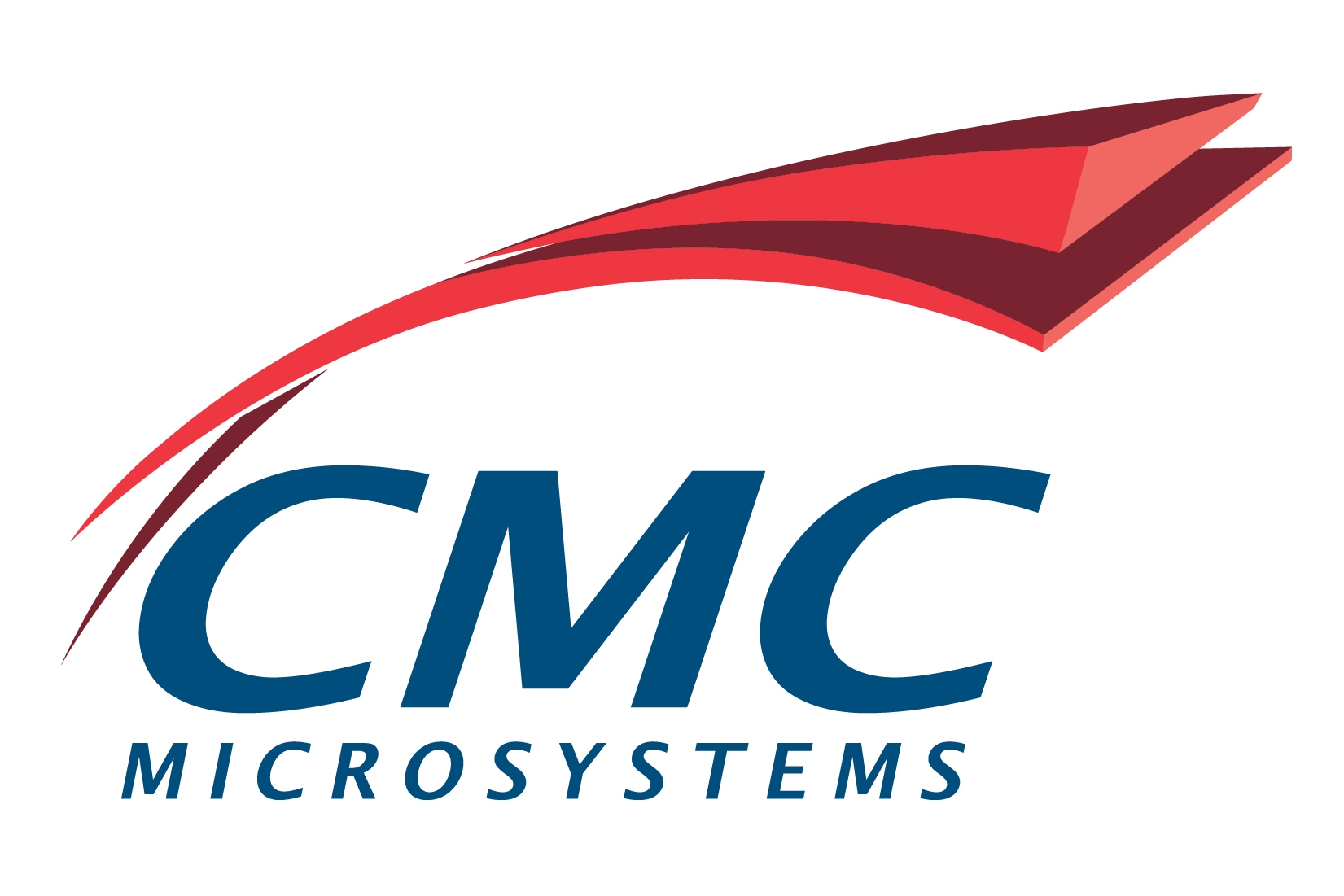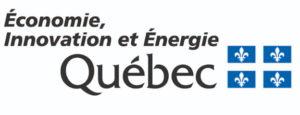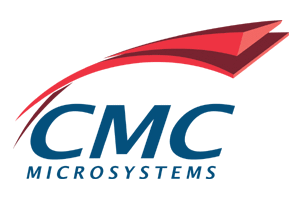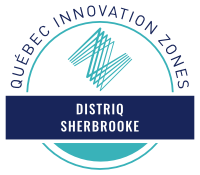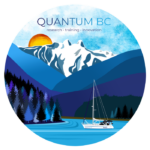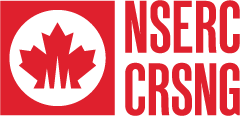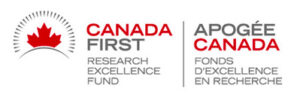Building quantum computers requires a combination of components, such as quantum bits, couplers, and control and readout lines in a single chip. A small design or fabrication error can be a costly, complete failure of the quantum-computer chip. Developers of components must master concepts (quantum mechanics and superconductivity) and need experience in state-of-the-art tools and techniques to fabricate devices. These concepts and techniques are not part of the usual science and engineering curriculum.
To fill this gap, CMC Microsystems, the Institut quantique, the DistriQ, Quantum Innovation Zone, the NSERC CREATE QSciTech, and the NSERC CREATE in Quantum Computing have joined forces with professors from the University of Calgary, and the University of Waterloo to bring to you the workshop on the design, fabrication, and testing of superconducting devices used in quantum computer hardware. We invite you to join the in-person workshop taking place in Jouvence, Orford, Québec, from June 26 to June 30.
The workshop will teach participants how to design, simulate, fabricate, and test their own superconducting circuits. The workshop will cover the fundamentals of superconductors and Josephson junctions, and how to design circuits such as resonators, SQUIDs and qubits. Students will brainstorm with researchers at leading Canadian universities and industry to pitch their device idea and use CMC-provided CAD tools to design, simulate and submit devices for fabrication by a foundry facilitated by CMC. Most participants will test their chips in a 4K probe station at one of the universities, or with a dilution refrigerator already available for those students pursuing a Ph.D. in experimental quantum information science. Students without access to a low-temperature probe station will be able to test devices at the Quantum Fab Lab at Institut quantique.
Participants who choose to fabricate devices will participate in a Device Design Student presentation taking place in December 2023 (remote presentation format). After receiving the fabricated devices, participants must measure their devices and present their findings at the Device Measurement student presentation in October 2024 (remote presentation format). Certificates will be given to participants after the in-person workshop, device design and measurement presentations.
In an industry panel organized by DistriQ, participants will have the opportunity to interact with industry experts developing quantum technologies at leading Québec quantum start-ups and companies.
Don’t miss CMC BasecampTM Build Your Own Superconducting Quantum Device workshop, which will allow you to learn why superconducting devices are at the heart of today’s commercial quantum computers such as those of Nord Quantique, Anyon Systems, D-Wave, and IBM.
Important Notes:
- Some of the technologies accessed and software used for training purposes in this course are classified as ECCN 3D991 under USA’s export control regulations, restricting access to individuals with citizenship of Cuba, Syria, Sudan and Iran. Although these regulations are entirely outside of CMC’s control, we strive to provide equal opportunity to all potential attendees. If you are interested in attending this workshop, but are not enrolled at an academic institution in Canada, and identify as having the most recent citizenship with one of these countries, please let us know before registering. We will help you set up alternative technologies and software necessary to participate in this course.
- The workshop has limited space for 40 participants.
- All participants must apply to attend the workshop (see section Application) by the registration deadline of May 11, 2023.
- Application to the workshop does not guarantee a place.
- Selected participants (academics or industrial) will have lodging and food costs covered by the workshop.
- Shuttle to and from Montreal and Sherbrooke to the venue will be provided.
- Graduate students can also request financial support to cover the transport costs to a maximum of CAD $1,000.
- This event will be held in English.
- If you are registering in an option that includes fabrication (Option 1), you will be required to complete export control questionnaires. Contact Sarah Neville (Neville@cmc.ca) to get a copy of the questionnaires.
- To obtain access to confidential technology information provided during the course, your organization is required to sign a Non-Disclosure Agreement (NDA) with CMC Microsystems. Please contact Charles Paradis (Charles.Paradis@cmc.ca) to facilitate the NDA execution process prior to May 25, 2023.
- Course participants will have access to other proprietary and confidential information during the course, each participant is required to sign an Access to Intellectual Property & Non-Disclosure Agreement. Participants should submit a signed agreement to Sarah Neville (Neville@cmc.ca) prior to May 25, 2023.
Target Audience
The target audience for this workshop are:
- Graduate students who have completed the UBC course EECE 571S Introduction to Quantum Computing by Joe Salfi, or
- Graduate students who have completed the Université de Sherbrooke course PHY 737 Information et calcul quantiques (or PHY 637), or
- Graduate students who have completed the Simon Fraser University course PHYS 816 Quantum Information Science or
- Graduate students who have completed the University of Waterloo courses QIC710 and QCI750 as general courses, or the QIC880 course on superconducting devices.
- Other students, postdoctoral researchers, academics and industry members with relevant backgrounds in science and/or engineering.
Workshop Details
Date: June 26 to 30, 2023
Start Time: 8:30 am EDT
End Time: 6:00 pm EDT
The workshop will run six hours per day with breaks in between. The daily schedule is divided into four 1.5-hour sessions, two 30-minute coffee breaks, and a 2-hour lunch break. On Friday, June 30, the session will start at 8 am EDT and end at 12:00 pm EDT.
It will be focused on teamwork and problem-based learning. Specific topics include:
- Superconductivity and the London equations. The Josephson junction. The RF- and DC-SQUID.
- Theory of superconducting quantum circuits.
- Circuit extraction and distributed circuit design. Transmission lines, resonators, and filters.
- Readout of superconducting circuits.
- Design-Fabricate-test cycle (completed after the workshop):
Participants will design their circuits, then submit them for manufacturing using the newly established CMC process (the target submission deadline will be 3 months after the workshop). Students may also use their own home institution fabrication infrastructure. Participants will then test their chips at their home institution (chips will be delivered 3-6 months after submission), or at 4 K infrastructure arranged by CMC (see below). - Example circuits that students can design, and which can be tested at 4 K: RF resonators, transmission lines and filters; AC SQUIDs – at 4 K they work as magnetic field sensors and at low T become qubits.
The workshop activities are listed below. You may click the table to see an enlarged view.
Speakers/Instructors
- Prof. Shabir Barzanjeh – University of Calgary
- Prof. Yves Bérubé-Lauzière – Institut Quantique, Université de Sherbrooke
- Prof. Rogério de Sousa – Quantum BC, University of Victoria
- Prof. Max Hofheinz – Institut Quantique, Université de Sherbrooke
- Prof. Mathieu Juan – Institut Quantique, Université de Sherbrooke
- Prof. Corey Rae McRae – University of Colorado Boulder
- Dr. Udson Mendes – CMC Microsystems
- Dr. Reza Molavi – D-Wave
- MSc. Charles Paradis – CMC Microsystems
- Prof. Joe Salfi – Quantum BC, University of British Columbia
- MSc. Christopher Xu – Institute for Quantum Computing, University of Waterloo
Application
For all participants, registration and participation in the workshop are conditional upon completion of the Application Form and being selected by the organization committee.
Please send the completed Application form to quantum@cmc.ca by May 11, 2023.
Selected participants will be contacted by the organization committee by May 14, 2023. Only 40 participants will be selected to attend the workshop. Selected participants must complete the registration fee payment by May 20, 2023. Selected participants who fail to complete their registration by May 20, 2023, will lose their spot at the workshop and will be replaced by another participant.
Registration and Fees
| Option | Option 1: Workshop + CAD + Fab | Option 2: Workshop only (no CAD and no Fab) | |
|---|---|---|---|
| Price | Subscribers and graduate students in Canada* | $500 | General Registration: $2,000 |
International graduate students* | $750 | ||
Academics (Postdoctoral Fellows, Research assistants and Professors) | $1,000 | ||
Industry | $4,000 | ||
| Application | Closed. | ||
* Graduate Students are also eligible to request reimbursement of their transport costs to a maximum of $1,000 per participant.
Scientific Committee
- Prof. Shabir Barzanjeh – University of Calgary
- Prof. Rogério de Sousa – Quantum BC, University of Victoria
- Prof. Max Hofheinz – Institut Quantique, Université de Sherbrooke
- Prof. Mathieu Juan – Institut Quantique, Université de Sherbrooke
- Prof. Adrian Lupascu – Institute for Quantum Computing, University of Waterloo
- Prof. Matteo Mariantoni – Institute for Quantum Computing, University of Waterloo
- Dr. Udson Mendes – CMC Microsystems
- Prof. Joe Salfi – Quantum BC, University of British Columbia
Contact
If you have any comments or questions regarding the contents or registrations of this workshop, please contact Brent Jodoin from CMC Microsystems: brent.jodoin@cmc.ca.
Cancellations
Event cancellations must be received in writing at least one (1) week before the beginning date of the event in question to receive a full refund of the registration fee. A cancellation made after the deadline will not receive a refund.
